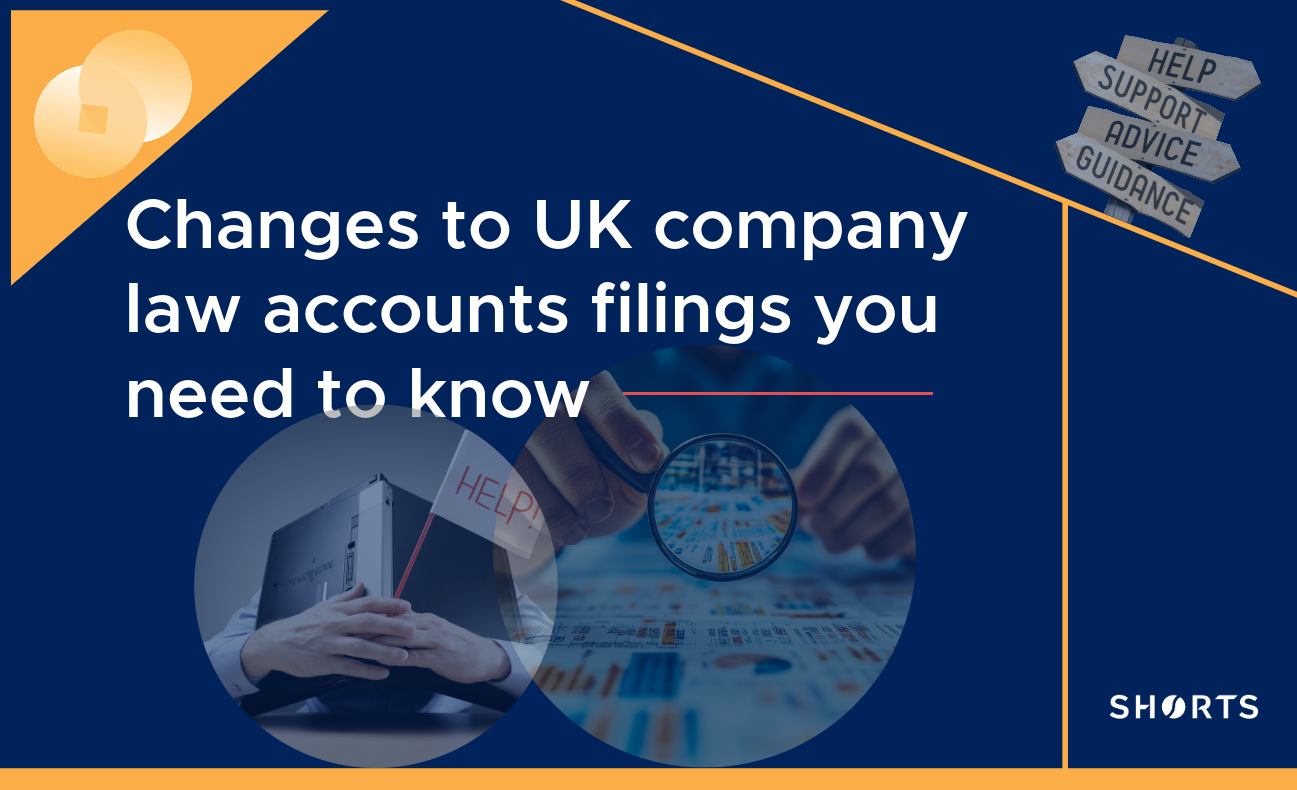
If you file your accounts directly via HMRC or Companies House, listen up. New legislation could change how you file your accounts, with potentially far greater exposure and cost for you.
What’s changing?
Previously, certain individuals and companies could file their own accounts and corporation tax directly through HMRC or Companies House. From 1 April 2027 though, the UK government will now require everyone to file using commercial software.
This new requirement also includes dormant accounts. HMRC and Companies House will close filings for web and paper formats, but keep its portal for statutory filings open.
Why are these new restrictions being introduced?
The UK government and its financial bodies want more efficient and secure filings from companies. Software-only accounts filings create a more cost-effective and importantly, traceable, way to file. It will help the UK meet international best practices and fight economic crime.
This change ensures businesses comply with the 2023 Economic Crime and Corporate Transparency Act to increase transparency of the financial information available to the public.
While the changes to UK company law will benefit the government’s financial institutions, it comes with unintended consequences for businesses and individuals, as Shorts’s Owner-Managed Business team discuss below.
Who will be impacted by these changes to UK company law?
The changes were first announced to businesses on 1 July 2025, giving organisations and small-and-medium-enterprises (SMEs) time to find an appropriate software for their needs.
This will apply to directors who file accounts themselves, companies using third-party agents and accountants that file annual accounts for businesses.
Does this apply to micro-businesses and small companies?
In short, yes.
|
Business Type |
Filing Requirements |
|
Micro-business |
Balance sheet, P&L account |
|
Small company |
Balance sheet, P&L account, Directors’ report, Auditor’s report (unless exempt) |
Micro-businesses must file a copy of 1) their balance sheet, and 2) their profit and loss account.
Small companies have slightly more elaborate requirements. They must file:
- A copy of their balance sheet
- Directors’ report
- Auditor’s report (unless exempt)
- Profit and loss account
These changes mark the end of filing abridges and filleted accounts. This shift has raised understandable concerns among business owners, particularly around the loss of financial confidentiality.
Publishing detailed financial data on the public record means that competitors, suppliers, and clients will have direct access to sensitive information. This could invite scrutiny, influence negotiations, and potentially undermine pricing strategies. For owner-managed businesses, where the profit and loss account often reflects personal income, this change can feel especially intrusive.
Although many have expressed concerns, and amendments, delays, or even reversals remain possible, the current position stays: the changes will proceed. Business owners should prepare now to ensure compliance and mitigate any strategic risks associated with increased transparency.
Expensive software fees
In most cases, changes should result in a minimal increase in fees if you currently pay an accountant to file your company accounts. Essentially, your accountant will simply be filing more information than previously, and providing you with more guidance.
If you have only filed your own company accounts, then expect the cost for the software to potentially reach substantial amounts per year. This depends on the complexity of your business accounts. Also, you will likely need both accounts and tax software if not supported together.
‘The new mandate aims to modernise UK corporate reporting and enhance transparency, but this will also introduce new challenges and costs for businesses,’ explains Jesse Duffield, Accounts Manager at Shorts.
‘I specialise in owner-managed businesses and it's those small and micro entities that manage their submissions in-house that will largely feel the impacts of these changes. They potentially face additional cost burdens to implement the software, which is then paired with training costs to comply with iXBRL electronic tagging requirements to avoid errors or rejected submissions.
‘Seeking professional advice ahead of the mandate changes to plan for the changes, whether this be for software set up, training, or ongoing support with tagging and submission, will be incredibly beneficial to ensure they remain compliant.’
Claiming an audit exemption
Any company claiming an audit exemption will need to give an additional statement from its directors on the balance sheet.
Directors will need to specify which exemption is being claimed, and confirm that the company qualifies for the exemption.
Accounting reference periods
Companies House is to limit how many times a company can shorten its accounting reference period.
A company will have to provide a business reason if it wants to shorten the period more than once within five years.
Director ID checks
Companies House also recently announced changes around identity verification for directors and persons with significant control.
How an accountant can help
An accountant can play an integral role to guiding you through these changes to the best interests of your company. They can provide guidance on the most cost-effective software for your business, or even file your accounts for you and avoid the additional costs. Moreover, they can help you navigate the release of information and provide specialist business advice.
If you seek further guidance, Shorts’ Owner-Managed Business team offer free consultations.

Liam Buttery
I work as a Director of Shorts' Owner-Managed Business team at Shorts. We provide businesses with advice on accounting, VAT and tax requirements to help them grow.
View my articlesTags: Accountancy Services
